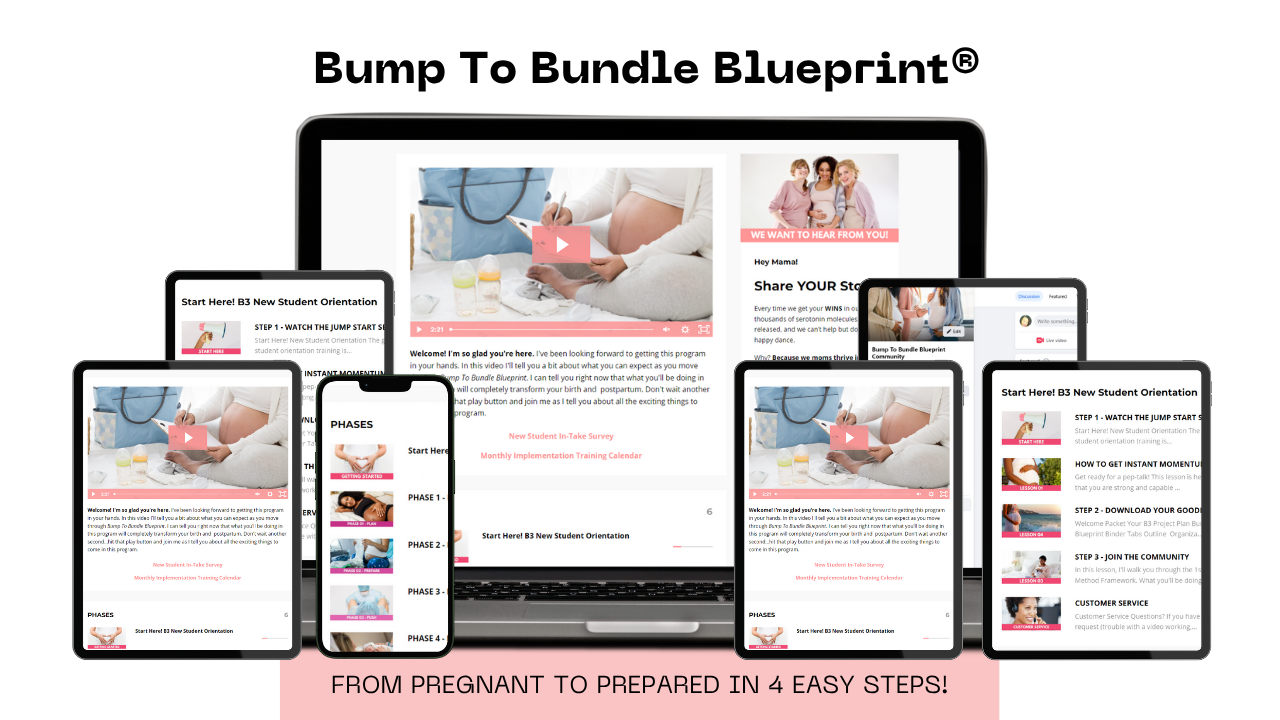29 Weeks Pregnant? Here’s What No One Tells You (But You Need to Know!)
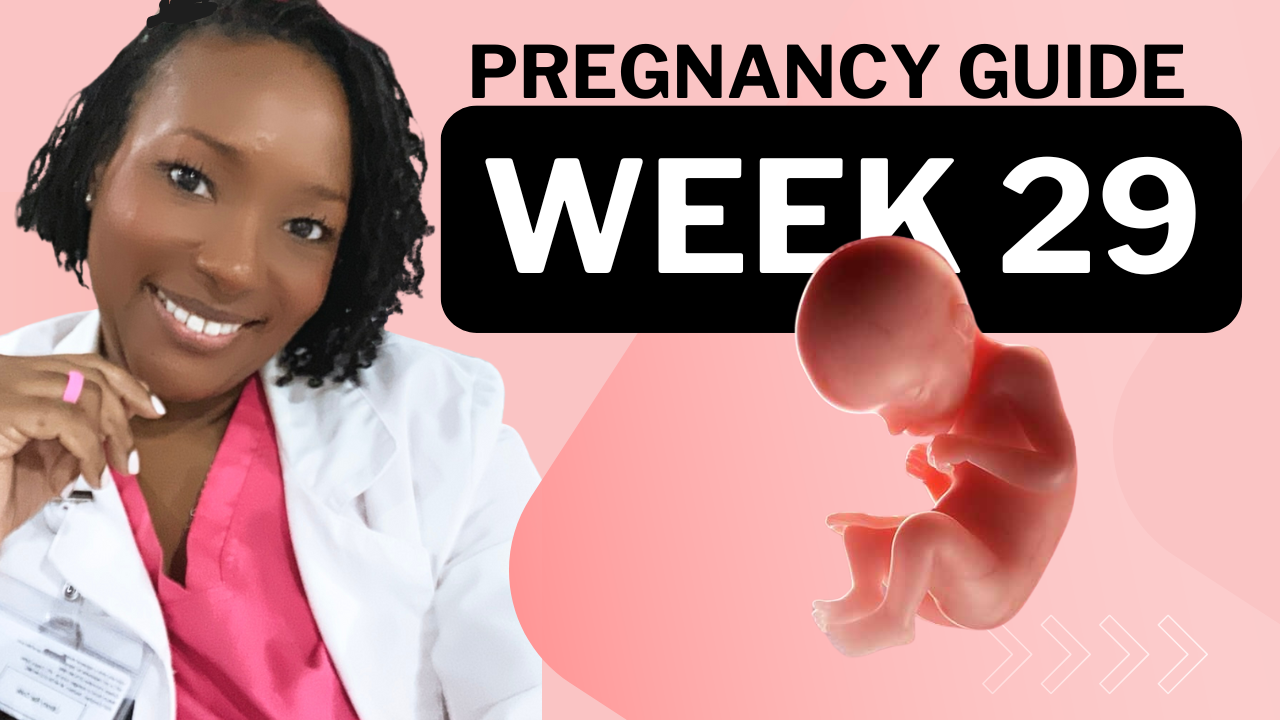
You’ve made it to 29 weeks pregnant—cue the applause! 👏🏽
But while you’re busy being told to “rest” and “nest,” there are some real changes happening in your body and brain right now that no one’s talking about. Let’s fix that.
🤯 Baby’s Brain = Major Growth Mode
By week 29, your baby’s brain is developing rapidly. Think: folds forming, temperature regulation kicking in, and stronger muscle control. This is why those kicks suddenly feel...wild.
💡 Pro Tip: Start noticing patterns, not just how often the baby kicks. You’ll thank yourself later when monitoring movement becomes more important.
⚡️ Lightning Crotch is a Thing
That sudden zapping feeling in your pelvis? Totally normal. Baby’s dropping lower and irritating some nerves in the process.
🔥 Quick Relief Ideas:
-
Prenatal yoga
-
Gentle pelvic tilts
-
Warm compress on your lower pelvis
🧠 Wait… Why Can’t I Think Straight?
“Pregnancy brain” is real, but it’s not about being forgetful—it’s about matern...
28 Weeks Pregnant What No One Tells You (But You Really Need to Know)
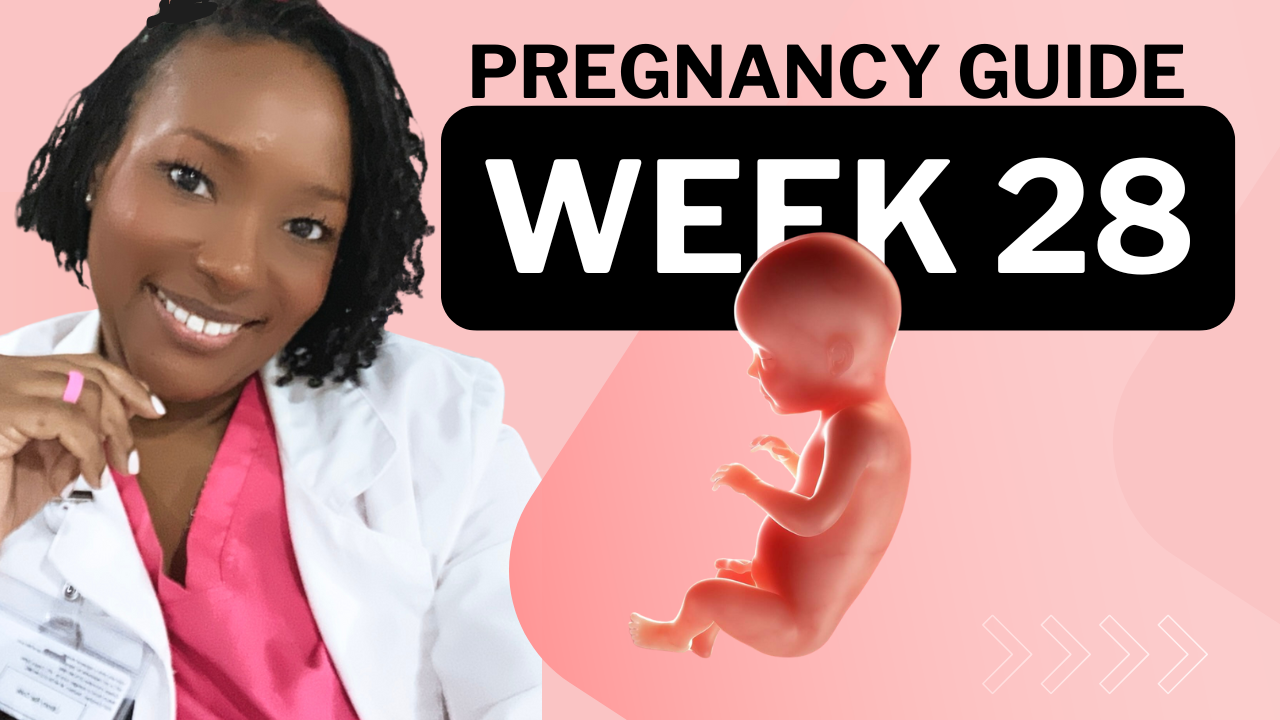
So, you’ve made it to the third trimester—cue the celebration! But between “get your sleep now” and “baby’s the size of an eggplant,” are people actually telling you what’s happening in your body (and what to do about it)?
Let’s fix that. Here's what no one talks about—but every pregnant mama should know at 28 weeks.
1. The Real Symptoms to Watch
Normal:
-
Braxton Hicks (aka warm-up contractions)
-
Blurry vision (yep, hormones can affect your eyes!)
-
Leaky boobs (colostrum may start early!)
-
Shortness of breath + insomnia
Not Normal:
-
Sudden swelling in your face/hands
-
Persistent headaches or blurry vision with floaters
-
Severe pain or bleeding
If you’re unsure, always call your provider. No shame in being cautious!
2. Your Body is Prepping for Birth Now
Here’s the deal: labor isn’t something that magically happens at 40 weeks. Your body is training already—and how you support it now matters.
Try this daily:
-
Light stretching + p
...
27 Weeks Pregnant: What’s Really Happening (And What No One Tells You)
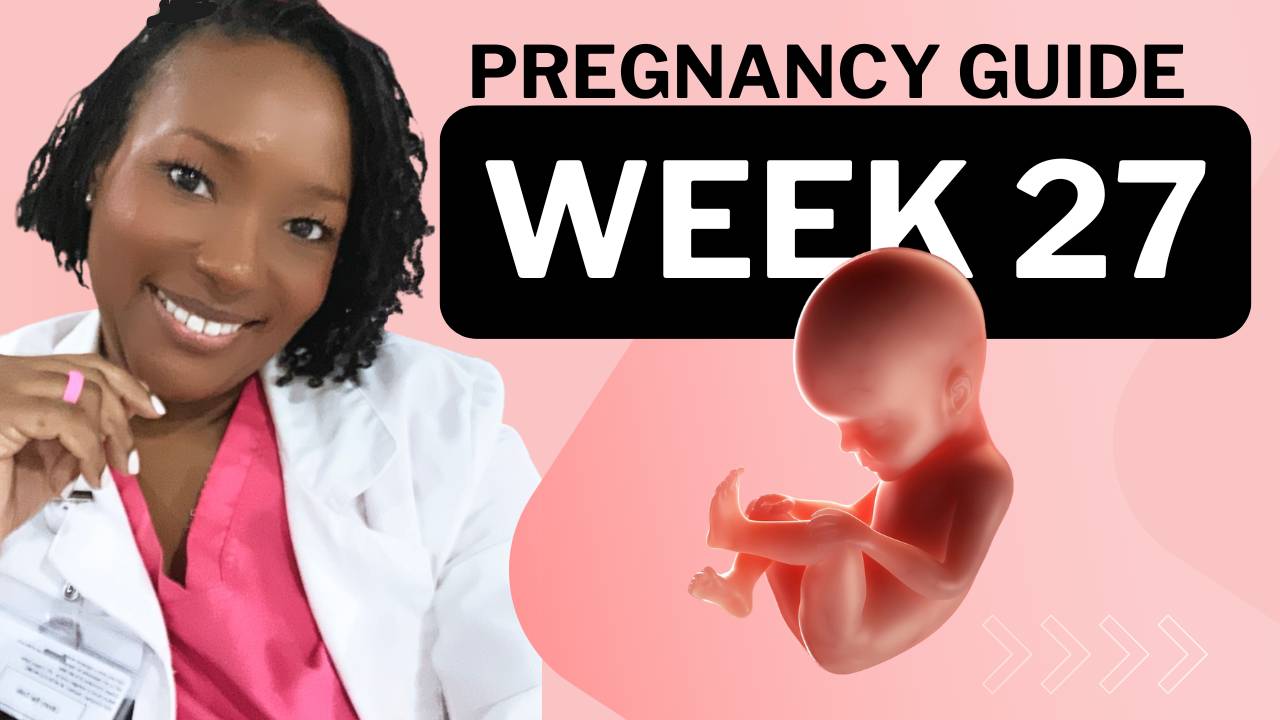
You’re 27 Weeks Pregnant! Now What?
Welcome to week 27 of pregnancy — the official start of the third trimester. 🎉 At this point, your baby is busy growing, your body is shifting in new (and sometimes strange) ways, and you might be feeling the pressure to "get everything ready." But let’s be real — most first-time moms feel a little unsure right now.
So here’s your real talk guide to what’s going on in your body, your baby’s development, and how to actually start preparing for labor and breastfeeding.
Baby at 27 Weeks: Brain Power Incoming!
At 27 weeks, your baby is about the size of a head of cauliflower — around 15 inches long and 2 pounds in weight. But the most exciting change? Brain development.
-
Baby’s brain is building billions of neural connections
-
REM sleep (and even dreaming) begins this week
-
Baby can now recognize your voice — talk and sing away!
These changes are laying the foundation for learning, bonding, and early attachment. It’s the perfec...
26 Weeks Pregnant? Here’s What No One Tells You (But You Need to Know!)
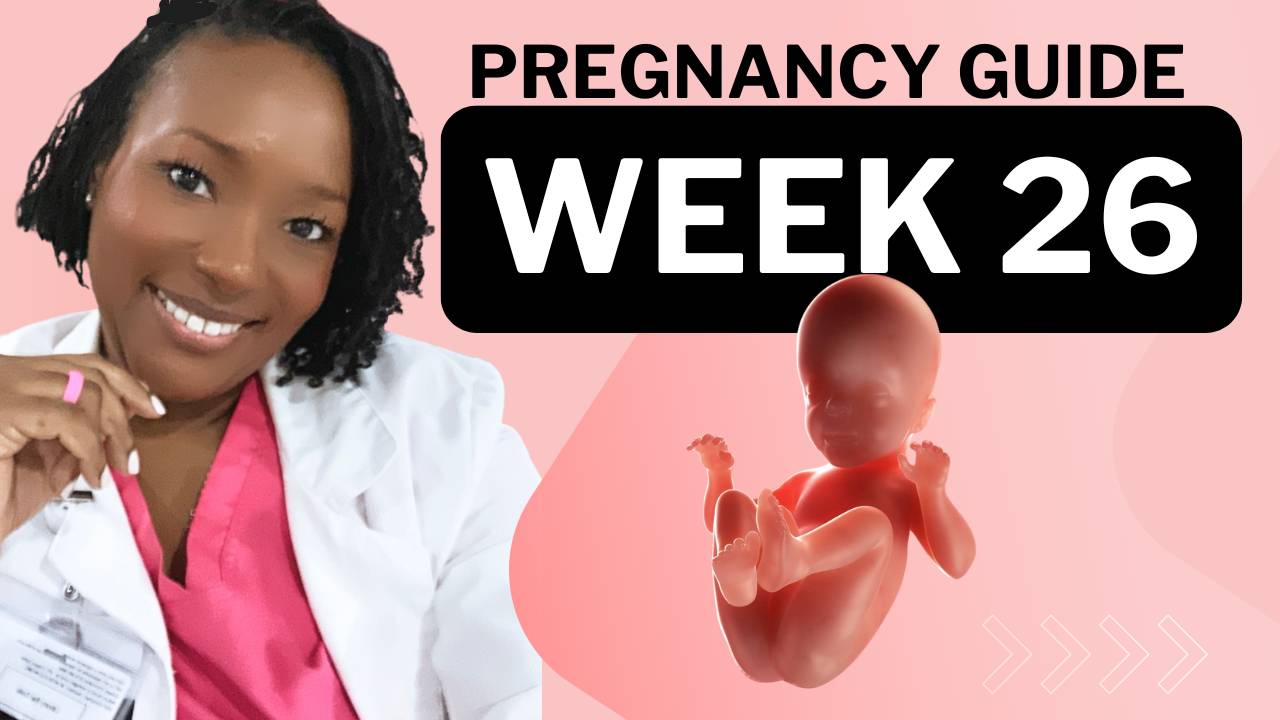
You’re 26 Weeks Pregnant — Here’s What You Really Need to Know
If you’re 26 weeks pregnant and wondering if that sudden belly pop or weird rib ache is normal… you’re not alone. This week isn’t just another milestone — it’s a major turning point in your pregnancy.
Let’s dive into the unexpected truths, expert tips, and must-do actions to make this week count.
Baby’s Development at 26 Weeks (It’s WILD)
At 26 weeks, your baby is about the size of a head of kale or a long zucchini doing flips in a water balloon (yep, that’s the vibe).
What’s happening inside:
-
Blinking & eyelashes! Your baby can now blink and even react to light.
-
Lung development: Tiny branches and surfactant are forming to help your baby breathe air after birth.
-
Amniotic fluid breathing: Yep, your little one is practicing those first big breaths.
Your Body at 26 Weeks: Symptoms You Weren’t Ready For
This is when your body really starts shifting to prepare for labor and postpartum.
Here ar...
25 Weeks Pregnant: What to Expect, Weird Symptoms & How to Prep for Birth
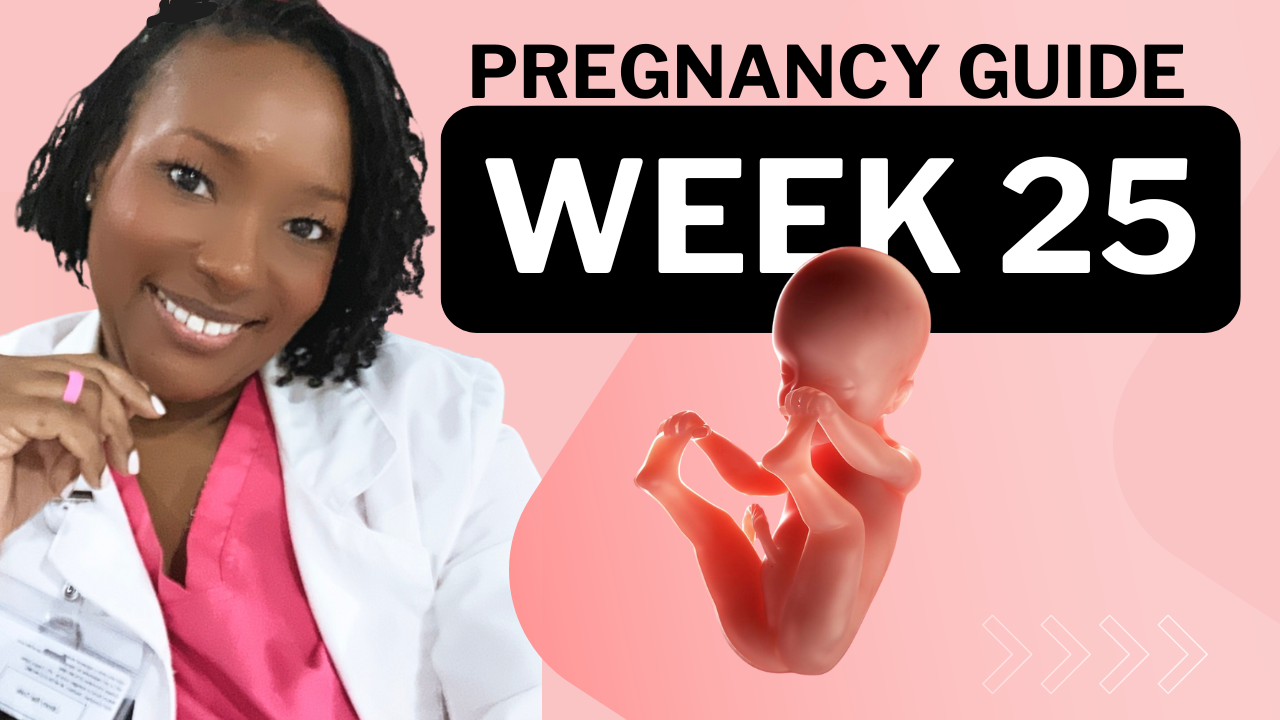
You’re 25 Weeks Pregnant — Here’s What You Need to Know
Welcome to week 25, mama! If you’re wondering what’s normal (and what’s just plain weird) this week, you’re in the right place. From achy backs and vivid dreams to surprising changes in your gums and boobs — your body is working overtime right now. Let’s break down exactly what to expect.
Baby at 25 Weeks: Growing, Moving, and Listening
Your baby is now around 13-14 inches long and weighs about 1.5 pounds — about the size of a full cauliflower! Here’s what’s happening developmentally:
-
Fat layers are forming to help regulate temperature after birth
-
Lung development continues as surfactant production begins
-
The startle reflex (Moro reflex) kicks in — baby can react to loud noises
-
Voice recognition begins — baby can start to recognize your and your partner’s voices!
Your Body at 25 Weeks: The Good, the Weird & the Oh-So-Normal
-
Out of breath easily? Your uterus is pushing up against your lungs
...
24 Weeks Pregnant: Symptoms, Baby Size, and What to Expect This Week
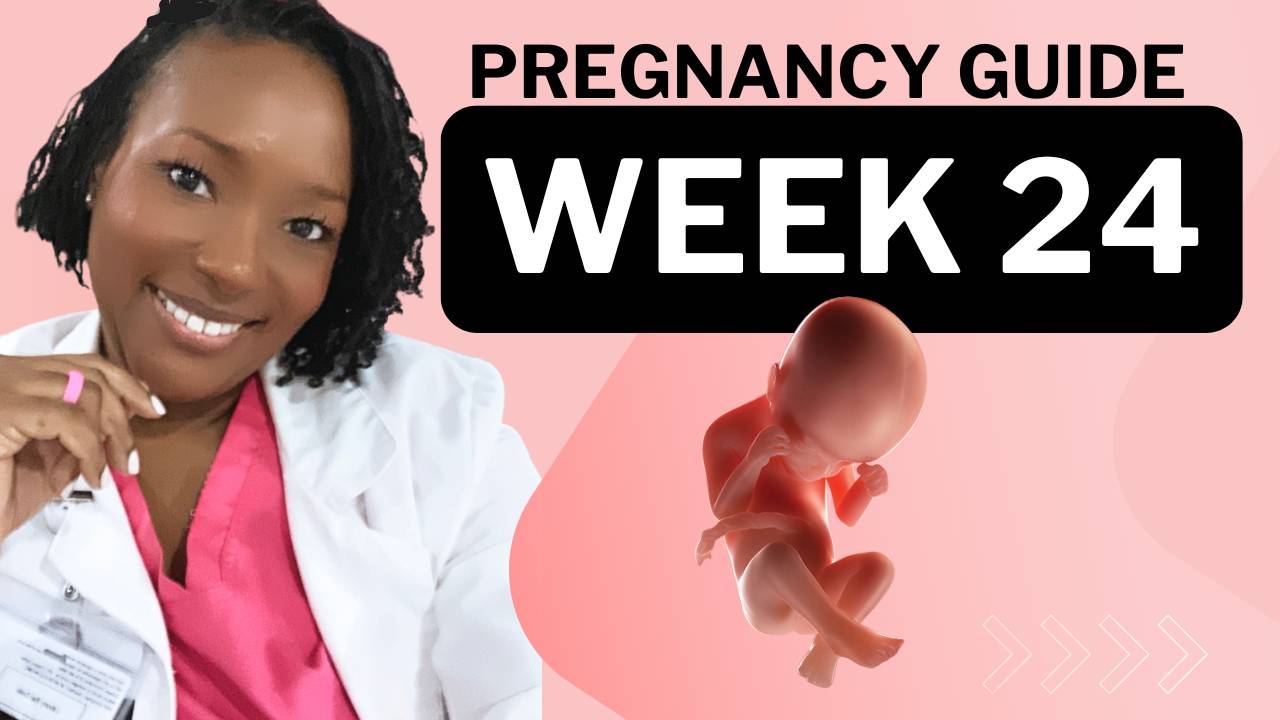
💬 Feeling Bigger, Breathless, and a Bit Emotional? Welcome to 24 Weeks Pregnant!
You're officially six months in, and this week is a BIG milestone — viability week! That means your baby would now have a chance of survival if born early. 🙌 And while you're not planning on that, it's still a powerful reminder of how far you’ve come, mama.
In this week’s guide, we’re sharing evidence-based, week-by-week pregnancy tips that go beyond the generic info — because you deserve the full picture.
👶 Baby at 24 Weeks: What’s Going On Inside?
-
Size: About 1.3 pounds and the length of an ear of corn 🌽
-
What’s developing: Lungs are maturing, taste buds are forming, and your baby’s face is fully formed!
-
Kicks are stronger now, and you may even notice a little routine — like baby being more active at night (because of course 😅).
🤰 Your Body at 24 Weeks: Real Symptoms, Real Talk
-
Round Ligament Pain: That sharp, stretchy feeling in your lower belly? Totally normal as your
...
23 Weeks Pregnant: What To Expect & Real Talk from Your Doula BFF
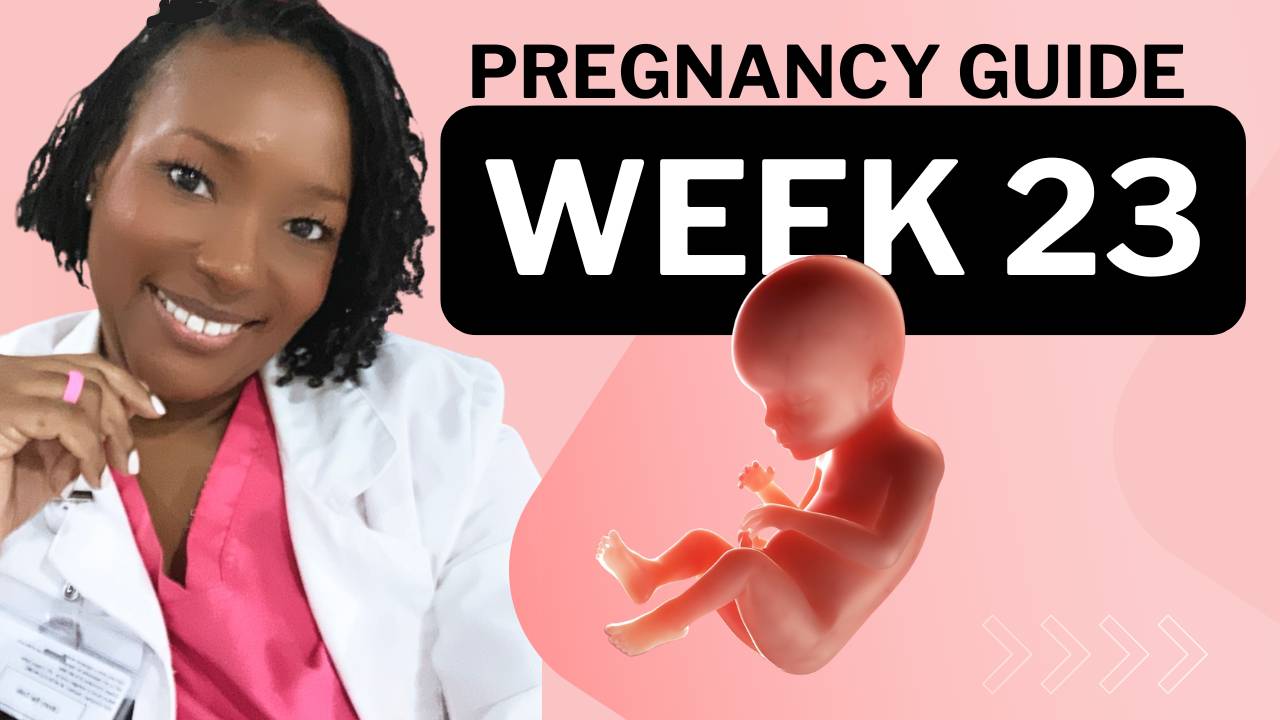
If you’re 23 weeks pregnant, congrats!
You’re more than halfway through your pregnancy journey, and whether you’re feeling like a glowing goddess or a tired hot mess (both are valid!), this week brings some big changes for both you and baby.
Let’s break it down.
🤰 What’s Happening to Your Body at 23 Weeks?
At 23 weeks, your uterus is around the size of a soccer ball and sitting above your belly button. You might start feeling:
-
More consistent baby movements (those fluttery kicks are now full-on jabs!)
-
Round ligament pain
-
Increased appetite
-
Slight swelling in your feet or hands
-
A stronger need for support garments or belly bands
💡 Doula Tip: A belly support band can make a huge difference in easing lower back and ligament pain. Trust me—you’ll thank yourself.
👶 Baby Development This Week
Your baby is about 11 inches long and just over a pound. Their lungs are developing rapidly (though not quite ready for the outside world just yet), and thei...
22 Weeks Pregnant: What to Expect (Real Talk from a Doula)
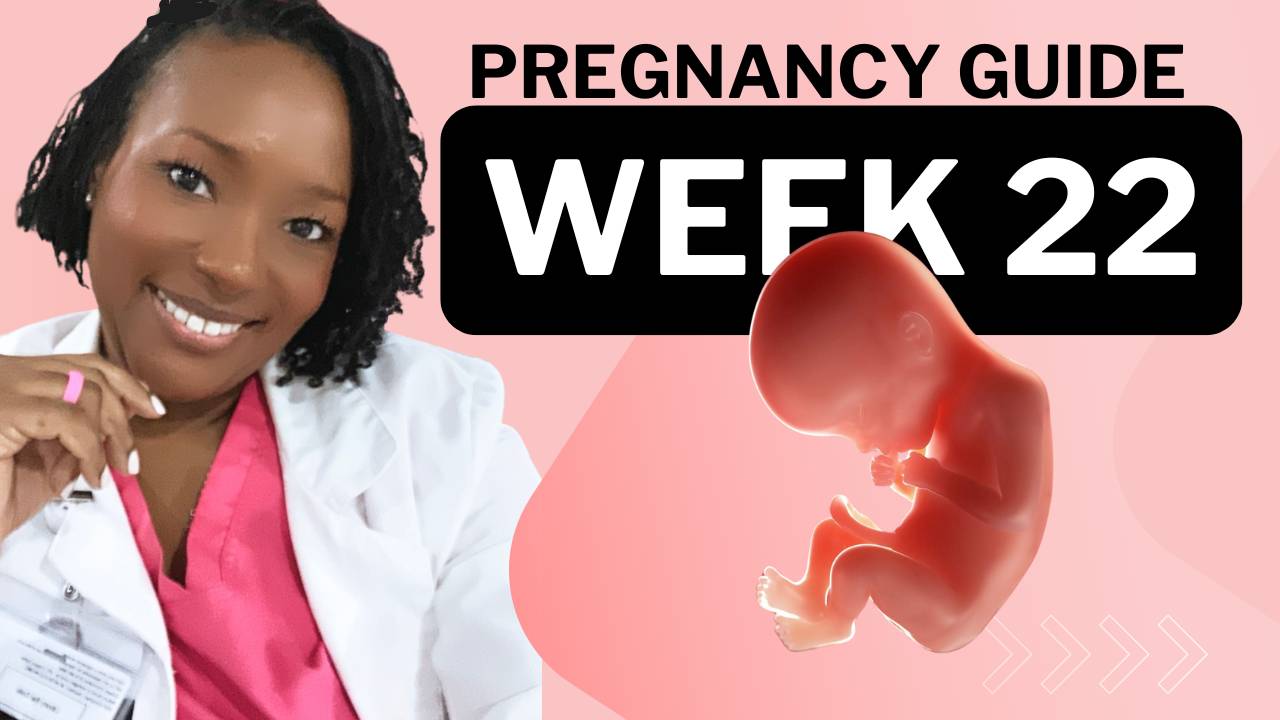
You’re officially 22 weeks pregnant, and trust me—you’re doing amazing. As a doula and lactation consultant, I’ve walked with so many mamas through this week, and I’m here to break it all down for you in a way that’s actually helpful (and not full of medical jargon that leaves you more confused than before).
So let’s get into it—here’s what’s going on with your baby, your body, and your brain at 22 weeks.
👶 Baby at 22 Weeks:
-
Your baby is about the size of a papaya (around 11 inches long and just under a pound!)
-
Those little eyelids and eyebrows? Fully formed now.
-
Baby’s starting to develop a sense of touch, and they might even be grabbing onto the umbilical cord.
-
Movements might feel more defined—think flips, stretches, and kicks!
🤰 Your Body at 22 Weeks:
-
You might be noticing more backaches or round ligament pain—totally normal but super annoying.
-
Stretch marks may start to pop up around your belly, boobs, or hips.
-
You could be fee
...
21 Weeks Pregnant: What To Expect, Baby Development & Doula Tips
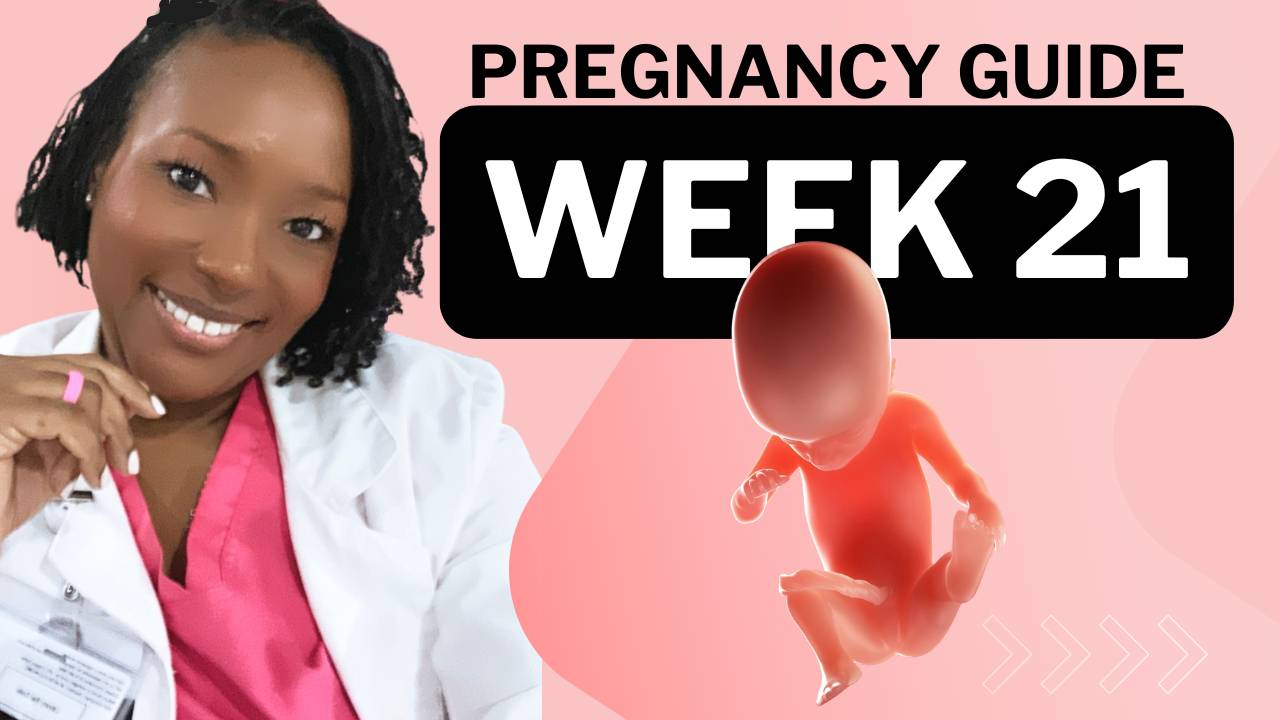
Are you 21 weeks pregnant and feeling all the feelings? Let’s talk about it!
As a doula and lactation consultant, I love walking alongside first-time moms through every beautiful (and sometimes weird) part of pregnancy. And week 21? This is such an exciting milestone!
Here’s what’s happening inside your body — and what to expect from your baby right now.
Baby Development at 21 Weeks Pregnant
-
Baby is about 10.5 inches long — about the size of a banana!
-
They’re swallowing amniotic fluid (and tasting what you eat!)
-
Baby’s digestive system is practicing for life outside the womb
-
Movements may feel stronger & more rhythmic now
-
Tiny eyebrows, eyelashes & facial features are becoming more defined
Common Symptoms at 21 Weeks Pregnant
-
Round ligament pain (ouch!)
-
Stretching belly & itchy skin
-
Trouble sleeping
-
Braxton Hicks contractions (practice contractions!)
-
Increased hunger — your baby is growing fast!
Doula Tips For...
Low Milk Supply? The Secret Nobody Tells You!

Feeling Like You’re Not Making Enough Milk? Here’s the Truth
Are you worried about your milk supply? You’re not alone! Milk supply concerns are the #1 stressor for new moms—but here’s the truth: most moms actually make enough milk!
So why do so many moms panic about low supply? Because of misinformation, myths, and unrealistic expectations. In this post, I’ll break down:
✔ How to know if your milk supply is actually low
✔ The biggest milk supply myths you need to stop believing
✔ What actually causes low milk supply (and how to fix it!)
Are You Really Not Making Enough Milk?
Before you stress, here’s what actually matters:
✅ Wet diapers: At least 6+ wet diapers per day after the first week = a healthy supply.
✅ Baby’s weight gain: Back to birth weight by 2 weeks and gaining 4-7 ounces per week.
✅ Content baby: If your baby is alert, active, and nursing well, you’re likely making enough!
🚫 What doesn’t mean low supply?
-
Soft breasts (that’s normal!)
-
Frequent n
...

